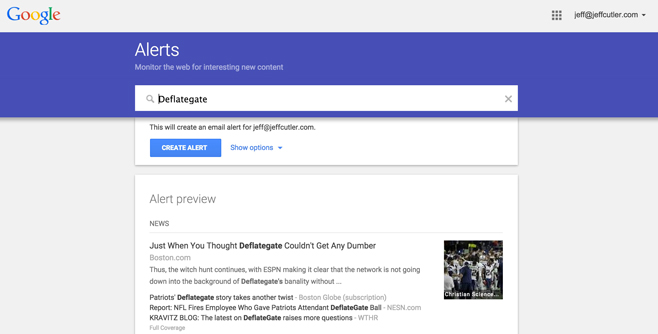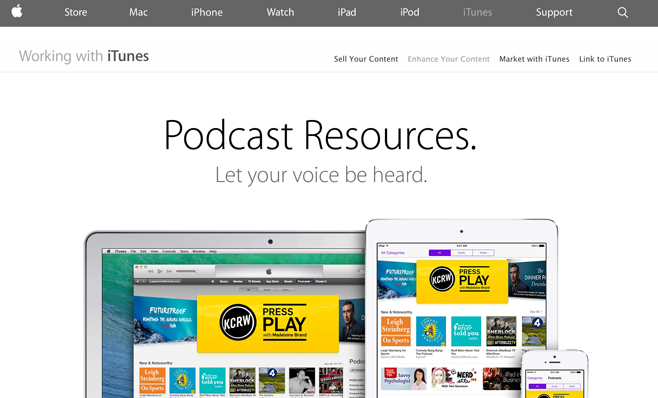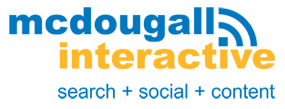 Being informed is akin to having power, especially in business circles where the professional with the most knowledge vaults to the top of the authority food chain. If you doubt this, look at any conference session as it wraps up. If the speaker has imparted new information and valuable knowledge, the entire room is lined up to ask more questions, grab a business card and shake hands with the presenter.
Being informed is akin to having power, especially in business circles where the professional with the most knowledge vaults to the top of the authority food chain. If you doubt this, look at any conference session as it wraps up. If the speaker has imparted new information and valuable knowledge, the entire room is lined up to ask more questions, grab a business card and shake hands with the presenter.
The real challenge to wearing the shoes of the informed is finding information that’s important, interesting and immediate. When you’re the first one with information, you are able to share that information and expertise faster and better than anyone else.
Think about it. Why is everyone so rabid to find the next news app for their mobile device? Why are audiences so stuck on the next best social network? In both cases, it’s because that’s where the buzz occurs first and where real conversations begin.
Today, I’m going to share three tools that will turn you into the smartest person in any room because they’ll give you interesting and valuable news and information that people don’t have yet. And instead of killing the messenger, they’ll laud you for being the authority on the topics you share.
Google Alerts

First up is Google. But not just basic Google, a tool within the monolith’s offerings that will immediately keep you up-to-date on any topic you choose. This tool is alerts.Google.com. Google Alerts has the power to notify, inform and enlighten you.
“Pshaw” you say? “I’m already using Alerts.” Sure you are. But you’re probably not LEVERAGING them in the best way possible. If you’ve set up fewer than seven or eight alerts on any topic area, you’re missing out on the power Google has to make you an expert. Here’s an example.
A journalist wants to fully leverage Google Alerts to track an election in her town. To be fully informed, she is best served by setting up alerts for…
- Each candidate in the race
- Each political party name and the town name
- The office and the town name
- Any competing newspaper or TV reporters’ names (those who cover political races)
- The outgoing politician’s name
- Other members in the office that’s up for election (selectmen’s names)
- Her own name – to track any coverage or use of her stories
- Succinct topic phrases for issues that office has addressed
- And the name of the town with the word election
Then set these alerts to be delivered immediately via email as they happen. With that, the reporter is poised to know everything that’s happening in her area of expertise as it occurs. Do the same as a business professional and you’ll always have new info on the topics you’re interested in, as it happens.
Search Aggregators

Next up is a search aggregator. In the past, people used Dogpile to search a bunch of search engines for a specific topic. Today, tools like DuckDuckGo.com and addictomatic.com are the best I’ve found for immediately searching a variety of sources.
To use these, just perform a search in the same way you might ‘google’ something. The returned information will encompass video, social media, photo and other sources – enriching your understanding and resources on any given topic. The best strategy when using these aggregators to build your authority is to fully understand exactly what you want to have in your informational arsenal.
Media

The third tool for making yourself smarter with ease is media, specifically podcasts and online video. The amount of content online and via Internet radio (podcasts) is huge. There’s a reason that YouTube is still listed as the second most popular search engine in the world after Google. It’s because people search YouTube for answers and resources to any and every question or problem they have.
You can do the same by strategically searching for shows, videos and online discussions that are in the online format. To share a mini case study, I used technology podcasts for years to stay up-to-date on the latest social media tools and technologies. By listening to a one-hour podcast each morning, I was positioned to speak intelligently to my clients and others about the latest software, hardware and applications.
As most folks won’t take the initiative to be proactive about getting informed, you’ll have a leg up on being an authority with just a little effort and know-how. Try these three tools and see if they can help you stand out as a thought leader and trusted resource in whatever area you choose.
Please share any tools you regularly use to inform yourself and your organization. Perhaps we’ll feature them – and you – in a future column. Thanks for reading!
